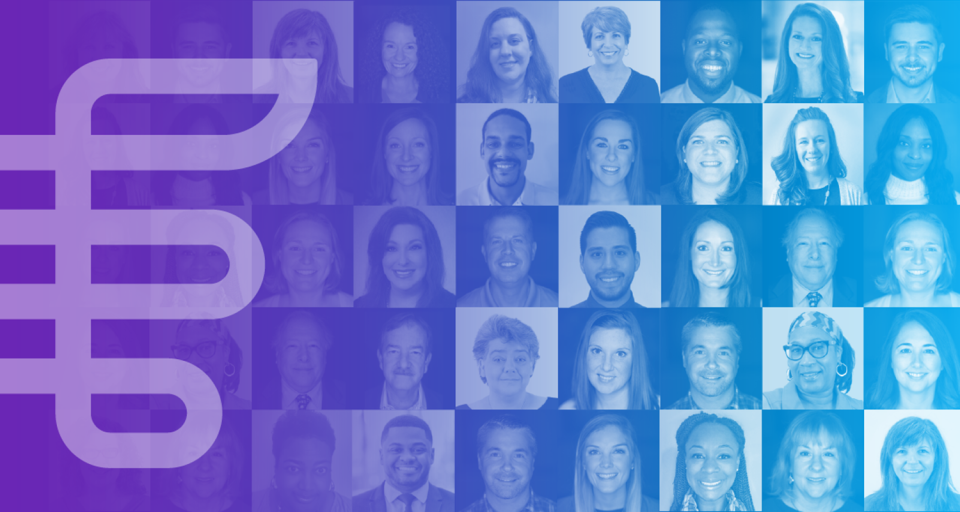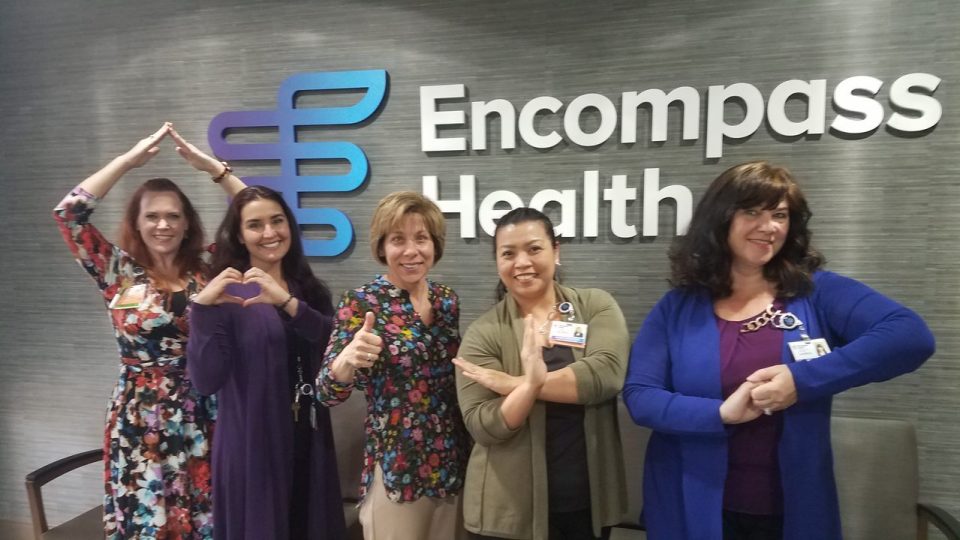At Encompass Health, the role our recruiters play is vital to the operations of our hospitals and branches, and ultimately the care of our patients. Although these team members do not provide direct patient care, it is their responsibility to seek out and hire top talent that will treat and care for patients in our hospitals as well as home health and hospice branches.
Encompass Health is made up of a network of over 40,000 employees that spans over 37 states, and our recruiters play an immense part in helping these individuals build their careers and become a part of the Encompass Health family.
“Recruiters play a vital role in aligning the right talent with the right roles as the foundation on which the best patient care and healthcare careers are based,” said Tony Hernandez, chief human resources officer (inpatient rehabilitation)
“The Talent Acquisition Team at Encompass Health – Home Health and Hospice works diligently every day to find and attract top talent to our organization and are key contributors to the overall success of our organization. They are celebrated for the difference they make in the lives and careers of so many and for the impact they make on the patients we serve by ensuring that we have the very best talent to live our guiding principle to provide a better way to care to all we are blessed to serve,” said Brenda Riordan, Executive vice president of strategic operations (home health and hospice)
Read on for insider tips from a variety of recruiters and hiring managers at Encompass Health, so you can be prepared for when the right opportunity comes your way. Search our job openings to find the right opportunity for you or connect with one of our recruiters to learn how you can join Encompass Health.
What the insiders have to say

Tasha Kelly, Senior talent acquisition manager
Home health and hospice
As a hiring manager, below are careful considerations I think about during the interviewing process:
- Culture fit? Keeping my team in mind and remembering they also will have to work with this person.
- Have they done their research on the company? It shows preparedness.
- Attitude. Skills can be taught, but having a positive attitude or outlook is something that comes from within.
- Professionalism.
- Experience or relevant experience.

Katie Hill, senior recruiter for the southeast region
Inpatient rehabilitation
In regards to a resume, it is important to:
- Ensure your contact information, including phone number and email, is correct. We may be contacting you on both. Be sure to check your voicemail and email (as well as junk mail!)
- Be sure that your voicemail is not full. We want to be able to leave you a message to share our exciting opportunities!
- Tell us your preference in terms of contacting you. Do you prefer a phone call, email or text message?

Anissa Ellis, branch director
Home health and hospice
Be open, honest and coachable in the interview. I have passed on candidates with incredible technical skills primarily because they presented as not coachable and not flexible. The healthcare industry, like most industries, is incredibly dynamic. Regulatory changes, best practice changes, staffing surplus (or shortages) – any number of things can and do crop up unexpectedly. You have to be willing to flow with the changes while still providing excellent patient care. It is a lot easier to teach someone the technical skills if they already have willingness to learn and adapt.

Janell Heckler, recruiting manager, leadership
Inpatient rehabilitation
When preparing for an interview:
- Prepare a list of questions for each person you are interviewing with (1-2 per person).
- Be well-groomed and dressed appropriately; better to be over dressed rather than under dressed (even for a clinical position).
- Follow up after the interview with a thank you to the people you meet with. This goes a long way.
- Bring a copy of your resume to the interview.
- Prepare for behavior-based questions.

Lane Mackey, branch director
Home health and hospice
Listen, then speak. Make sure you understand the questions being asked, and ask for clarification if needed.
Do your research about the company and the position; this lets the hiring manager know that you are serious.
Know what salary expectations you have going in.
Managers look for passion. For instance, I would hire someone with a little less experience if they show more passion for the position they are interviewing for.

Mark Hutchison, recruiter for the northeast region
Inpatient rehabilitation
On asking questions during an interview:
- Be prepared to run your half of the interview. Think about what you want to know and formulate your questions. Bulleting them on paper is fine to jog your memory. Most people cannot remember them all in an interview. You are better to have a few more that you decide not to ask, than not have enough.
- If you are interested, ask for the next step while you are there. The manager may not commit to anything, but you want to walk out with them knowing you are a serious candidate. This does not obligate you to work for them, but it moves you a step closer to an offer, which is the whole idea after all.

Stacey Mooney, senior talent acquisition manager
Home health and hospice
For advice on references and updating your resume:
- Have your resume updated, relevant and without errors/inconsistencies. Make sure it’s in active voice, with specific examples of your accomplishments.
- Make sure your list of professional references are notified and ready to respond quickly to potential employer reference checks.
To learn more about career opportunities at Encompass Health, we invite you to stay in touch with us by joining our talent community so a member of our recruitment team can email you with more information, or sign up to receive job alerts.
To pursue a career with Encompass Health, you can search for open opportunities near you.
The content of this site is for informational purposes only and should not be taken as professional medical advice. Always seek the advice of your physician or other qualified healthcare provider with any questions you may have regarding any medical conditions or treatments.



